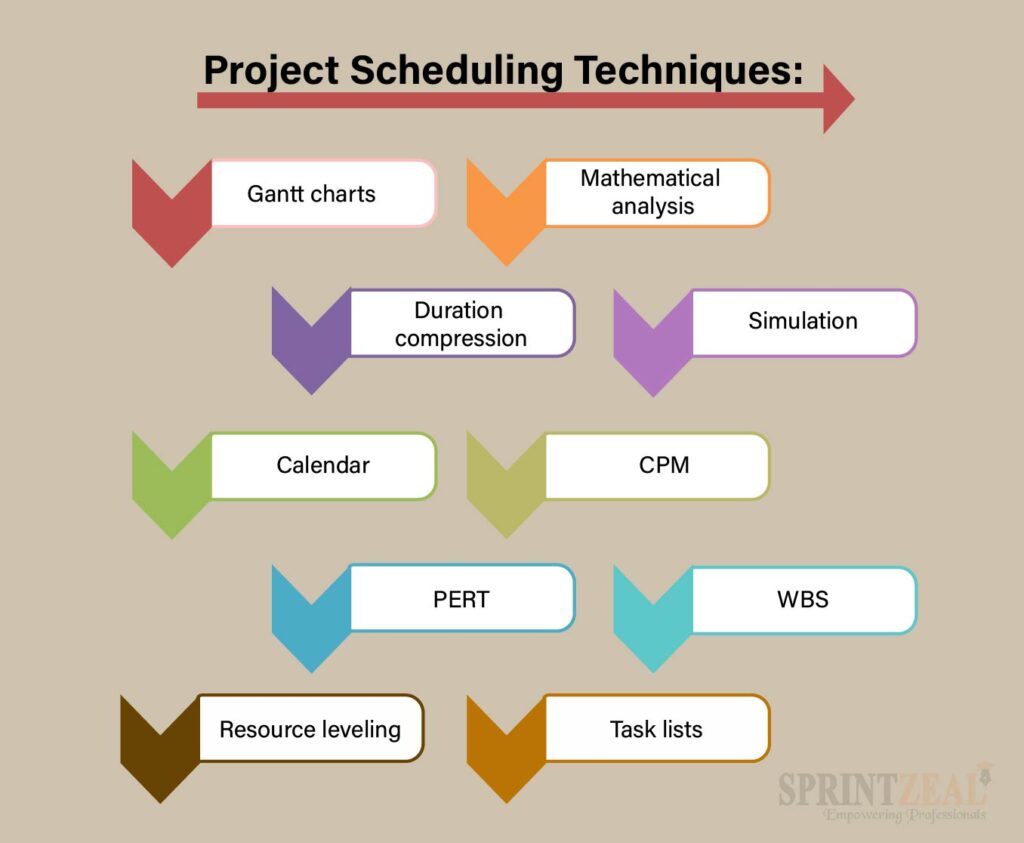Managing large-scale projects successfully requires meticulous planning, resource allocation, and strict adherence to timelines and budgets. Organizations across industries face challenges in meeting project deadlines while keeping costs under control. This is where project scheduling specialists play a crucial role. They are responsible for creating and maintaining effective project schedules that help organizations optimize time and financial resources.
Project scheduling specialists use advanced scheduling techniques and tools to develop structured workflows, allocate resources efficiently, and anticipate potential risks. Their expertise ensures that projects are completed within the allocated budget and timeframe, reducing delays and financial losses. This article explores the impact of project scheduling specialists on budget and deadline control, highlighting their role in achieving project success.
The Role of Project Scheduling Specialists
Project scheduling specialists are experts in project planning and execution. Their primary responsibilities include:
1. Developing Comprehensive Project Schedules
Project scheduling specialists create detailed project timelines that outline key tasks, dependencies, and milestones. They ensure that:
- Every project phase is planned meticulously
- Critical paths are identified to prioritize essential tasks
- Deadlines for each task are realistic and achievable
With a well-defined schedule, teams can stay aligned with project goals, reducing the risk of time and cost overruns.
2. Allocating Resources Efficiently
One of the biggest challenges in project management is ensuring optimal resource allocation. Project scheduling specialists:
- Assign personnel, equipment, and materials efficiently
- Prevent overallocation or underutilization of resources
- Adjust resource distribution based on project progress
Efficient resource management helps in controlling project costs and maintaining steady workflow without unnecessary expenditures.
3. Monitoring Progress and Adapting Schedules
Projects often face unforeseen challenges, such as technical issues, material shortages, or unexpected costs. Project scheduling specialists continuously monitor project progress and:
- Identify deviations from the initial schedule
- Implement corrective actions to realign project timelines
- Provide stakeholders with updated schedule reports
Their proactive approach prevents minor delays from escalating into major disruptions that could impact project deadlines and budgets.
4. Managing Risks and Contingency Planning
Unanticipated risks can cause significant delays and financial strain on a project. Project scheduling specialists:
- Conduct risk assessments to identify potential schedule disruptions
- Develop contingency plans to mitigate the impact of delays
- Implement buffer periods to accommodate unexpected changes
By anticipating and addressing risks early, they ensure that projects stay on track and within budget.
Impact on Budget Control
One of the most critical aspects of project management is cost control. Delays and inefficient scheduling can lead to budget overruns, resulting in financial losses for organizations. Project scheduling specialists play a vital role in controlling costs through:
1. Preventing Costly Delays
Delays often lead to increased labor costs, extended equipment rentals, and additional material expenses. Project scheduling specialists prevent unnecessary expenditures by:
- Identifying potential bottlenecks before they occur
- Adjusting schedules to optimize work processes
- Keeping teams accountable for staying on schedule
By minimizing delays, organizations can avoid financial strain and improve project profitability.
2. Optimizing Resource Utilization
Poor resource management can lead to inflated costs. Project scheduling specialists ensure:
- Labor hours are allocated effectively to prevent overtime expenses
- Materials are ordered and delivered on time to avoid rush costs
- Equipment usage is planned efficiently to minimize idle time
Optimized resource utilization reduces waste and ensures that every dollar spent contributes to project success.
3. Reducing Scope Creep
Scope creep occurs when additional tasks or changes are introduced after project initiation, leading to increased costs. Project scheduling specialists prevent scope creep by:
- Defining clear project objectives and deliverables
- Ensuring all changes go through a formal approval process
- Adjusting schedules to accommodate necessary changes without compromising budget constraints
By maintaining control over project scope, they help organizations avoid unplanned financial burdens.
4. Providing Accurate Cost Forecasting
Accurate budgeting relies on precise forecasting. Project scheduling specialists provide real-time cost analysis by:
- Tracking actual expenses against budget projections
- Identifying potential financial risks early
- Offering data-driven insights for better financial planning
Their ability to provide accurate cost projections helps organizations allocate funds efficiently and avoid unexpected expenses.
Impact on Deadline Control
Meeting deadlines is crucial for maintaining client satisfaction, avoiding penalties, and ensuring business continuity. Project scheduling specialists enhance deadline control through:
1. Establishing Realistic Timelines
Unrealistic deadlines can set projects up for failure. Project scheduling specialists:
- Assess project scope and complexity before setting deadlines
- Develop achievable timelines based on resource availability
- Prevent overloading teams with unrealistic expectations
By setting feasible deadlines, they improve project efficiency and reduce stress on teams.
2. Tracking Project Progress
Real-time progress tracking allows teams to stay on schedule. Project scheduling specialists:
- Monitor milestone completion rates
- Identify delays early and implement corrective actions
- Provide project managers with regular status updates
Their continuous oversight ensures that project milestones are met without last-minute rushes.
3. Enhancing Team Coordination
Miscommunication and poor coordination can lead to missed deadlines. Project scheduling specialists improve team synchronization by:
- Facilitating clear communication between departments
- Defining roles and responsibilities for each task
- Scheduling regular check-ins to align teams with project goals
Effective coordination ensures that all stakeholders work together efficiently to meet deadlines.
4. Managing Task Dependencies
Many tasks in large-scale projects depend on the completion of other activities. Project scheduling specialists use techniques like:
- Critical Path Method (CPM) to prioritize essential tasks
- Gantt charts to visualize task sequences
- Resource leveling to balance workload distribution
By managing dependencies effectively, they prevent workflow disruptions that could cause delays.
The Future of Project Scheduling Specialists
With the increasing complexity of projects, the role of project scheduling specialists is evolving. Some emerging trends include:
- Integration of Artificial Intelligence: AI-powered scheduling tools can predict delays and recommend optimal scheduling solutions.
- Cloud-Based Project Management: Remote access to scheduling software allows real-time collaboration and updates.
- Advanced Data Analytics: Predictive analytics enable better decision-making based on historical project data.
- Increased Automation: Automated scheduling tools streamline task assignments and progress tracking.
As organizations continue to invest in advanced scheduling methodologies, the demand for skilled project scheduling specialists will continue to grow.
Conclusion
Project scheduling specialists play a crucial role in ensuring projects are completed within budget and on time. Their expertise in planning, risk management, resource allocation, and progress monitoring helps organizations minimize financial losses and avoid costly delays. By optimizing scheduling strategies, they improve efficiency, enhance team coordination, and provide accurate financial forecasting.



